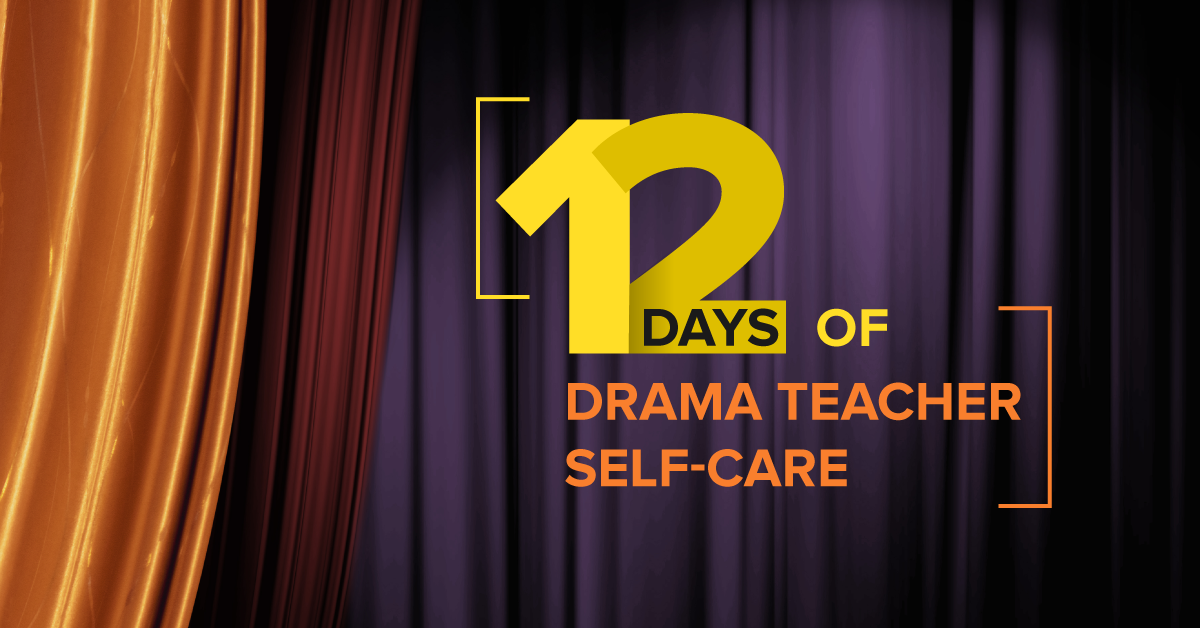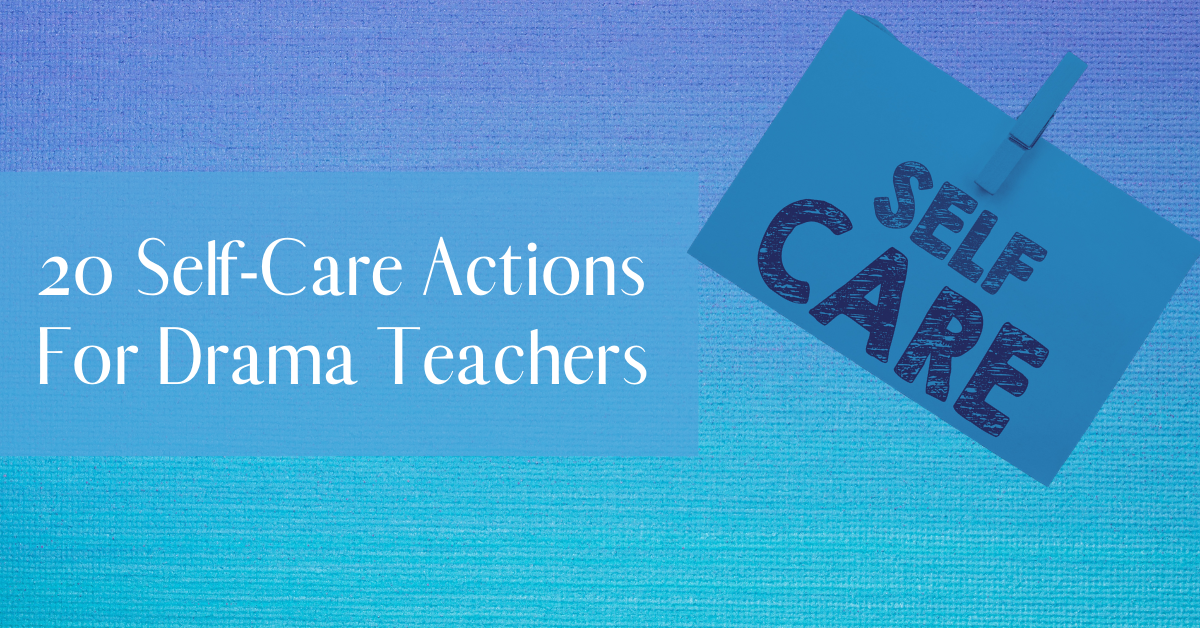There exists in everyone the potential for good or evil. Laramie Dean's adaptation of Dracula asks the question: How much would it take to bring out the darkness inside of you?
12 Days of Drama Teacher Self-Care
When was the last time you partook in some self-care? Does the thought of self-care feel indulgent or like something you have to earn or treat yourself to? What if you made sure self-care was a part of every single day?
When we take care of ourselves on a daily basis, we are better equipped to be happy, healthy, and successful drama teachers — and happy, healthy, and successful human beings.
Let’s start small, with twelve days of drama teacher self-care. Try the following low-cost, low-tech, and low-stress self-care suggestions, because you deserve it. The order doesn’t matter; what matters is that you feel refreshed, rejuvenated, and ready to take on your next challenge.
1. Release some tension. If you wear your hair up, take it down. Put on some loose, comfy clothing. Stretch your body. Take a long, hot shower. If you can, book a massage. Unclench your jaw and take your tongue down off the roof of your mouth. (I bet you didn’t realize you were doing that!)
2. Unplug. Close your laptop, silence your devices, turn off the lights, and enjoy even five minutes of screen-free time. If you think you’ll be tempted to check your phone, put it in another room.
3. Get outside , even if it’s cold or rainy. There’s a Scandinavian phrase that says, “There is no such thing as bad weather, only bad clothing.” Bundle up and go get some fresh air, even if it’s just a walk to the end of the block and back. The fresh air will clear your mind and get your blood flowing.
4. Ask for help. Whether you need help with lesson plans, advice for your upcoming virtual show, or just someone to listen to you vent, you don’t have to do everything yourself. Use one of Theatrefolk’s exercises, ask colleagues to share a successful lesson plan with you, or ask your administrators for advice and support. You’re not alone!
5. Reflect. Write down a happy memory from a past drama class or show, describe a funny incident during a recent lesson, or think about a sweet message you’ve received from your drama students. Create a folder in your email inbox called “Happy” (or similar) where you can collect nice messages and look back on them. See below for a reflection on things that bring you joy.
6. Delegate. Divide students into small groups, assign each group a different topic, and let them lead the class. If you have a student teacher for your class or an assistant director for your virtual production, have them take over some lesson planning, rehearsal scheduling, marking, or warm-ups as applicable.
7. Refresh your surroundings. Take a break from work and give your workspace a good once-over. This is especially important if you are teaching via distance learning and are working from home. Clear any clutter off your desk and organize your paperwork. Consider rearranging the space. For example, what if you were to move your desk closer to the window? Add one thing to your workspace that brings you joy — a favourite photo, a plant, a pack of pens that actually work, a poster from a past production. Break up that stagnant energy!
8. Rest. You may be getting sleep, but are you getting enough quality sleep? Could you benefit from a new pillow, a fan in your room, or a white noise machine or app? If you have a television in your bedroom, challenge yourself to keep it off for a week and see how your sleep improves. Review your bedtime routine. Is it conducive to sleep (low lights, a warm bath, a good book, screens off), or are you inadvertently winding yourself up (exercising or eating too close to bedtime, working in bed, staying up too late)?
9. Have a laugh. Laughing increases endorphins, reduces feelings of stress, and even helps improve your immune system. Do a comedy unit or improvisation exercises with your students, with the goal of making you laugh. Share clips of hilarious scenes from plays or musicals with your students.
10. Share your passion with others. Share your favourite play, musical, scene, actor’s performance, musical number, theatre book, song, or monologue with your students. Explain why you love it. Your students will pick up on your joy. Have students share their favourites with you.
11. Say yes. To accepting help. To believing in yourself and your students. To drinking lots of water and eating food that makes you feel good. To getting a good night’s sleep. To single-tasking, rather than multi-tasking. To stepping away from the computer. To putting your phone down. To taking breaks. To taking time for yourself, without shame. To setting boundaries. To “refilling your cup,” however that looks for you. To practicing self-care on a daily basis.
12. Say no. To feelings of having to be perfect. To negative self-talk. To guilt for “not doing enough.” To “should-ing” on yourself (“I should be working more, I should be coming up with better lesson plans, I should…”). To taking on a virtual or in-person production, or any other extracurricular event, if you are not feeling physically or mentally up to it.
For more on self-care:
- Drama Teacher Self-Care (And No, We Don’t Mean Candles and Bubble Baths)
- 20 Self-Care Actions for Drama Teachers



